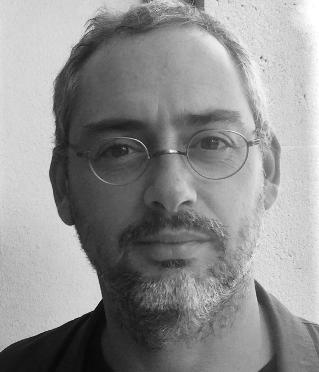

David Stromberg is a writer, translator, and literary scholar.
Stromberg's nonfiction work includes a series of personal essays in Public Seminar about growing up on the social margins of Los Angeles. He has written about the cultural implications of the coronavirus epidemic, the emotional layers of American revolt, and reflections on literature's role in daily life. Among his recent works are a series of speculative essays, "A Short Inquiry into the End of the World" (The Massachusetts Review), "The Eternal Hope of the Wandering Jew" (The Hedgehog Review) as well as "To Kill an Intellectual" (The Fortnightly Review). He also contributes a column, "Letter from Jerusalem," to Salmagundi.
Stromberg has published translations from Russian, Hebrew, and Yiddish, and edited In the Land of Happy Tears: Yiddish Tales for Modern Times (Delacorte), a collection of children's stories from the early 20th century. He is editor of the Isaac Bashevis Singer Literary Trust, and his translations of Singer's work have appeared in The New Yorker, Tablet, Los Angeles Review of Books, One Story, and Conjunctions. He has published a collection of Singer's essays, Old Truths and New Clichés (Princeton University Press) and a retranslation of Singer's canonical story, Simple Gimpl: The Definitive Bilingual Edition (Restless Books). His also translated and edited a three-volume collection of Singer's Writings on Yiddish and Yiddishkayt (White Goat Press).
Stromberg has published scholarly research in Prooftexts, Soundings, Journal of Narrative Theory, Studies in American Jewish Literature, and The American Journal of Psychoanalysis. His first book-length study, Narrative Faith: Dostoevsky, Camus, and Singer (University of Delaware Press), focused on narrative technique and moral vision. His second, Idiot Love and the Elements of Intimacy (Palgrave Macmillan), explored the intersection of literature, philosophy, and psychoanalysis.
Stomberg's earlier publications include four collections of single-panel cartoons, including Baddies, with a Foreword by Aimee Bender (Melville House); fiction appearing in Ambit, The Account, and The Woven Tale Press; and essays appearing in The American Scholar, Speculative Nonfiction, and Literary Matters, among others.
Born in Israel to ex-Soviet parents, Stromberg immigrated as a child to the United States and returned to Israel twenty years later. He lives and works in Jerusalem.
© Copyright David Stromberg 2023